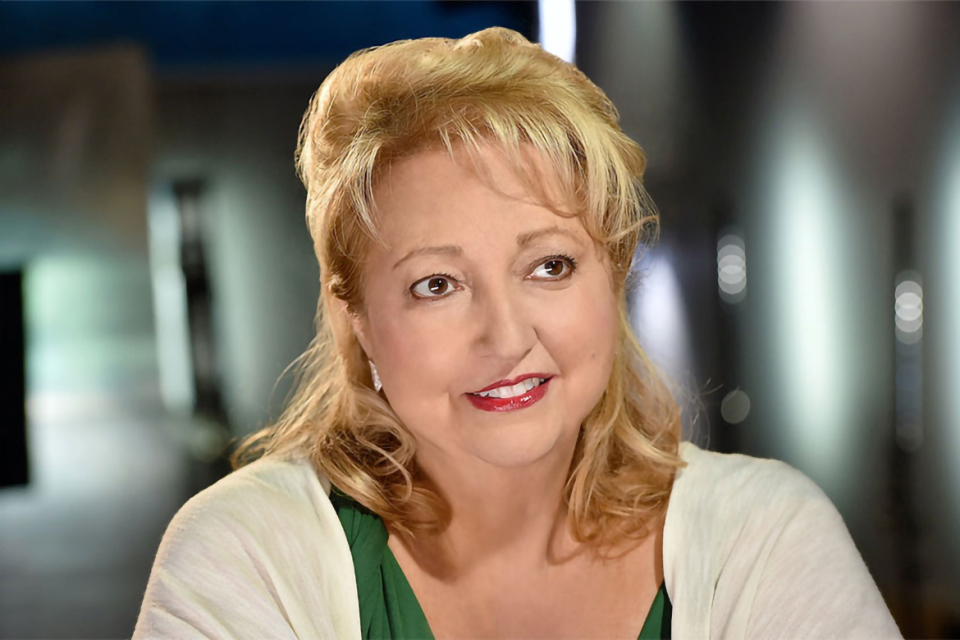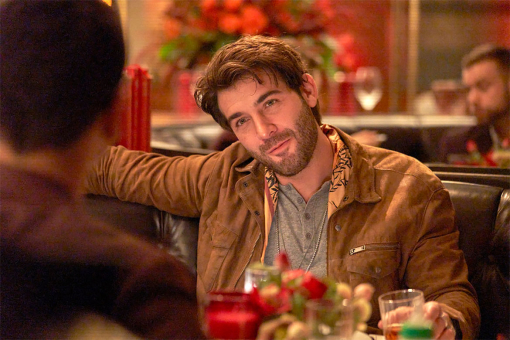Ask any teacher why they do the job, and you will get some variation on this answer: To pass along what I've learned.
Actress and famed acting teacher Michelle Danner is no exception. She says, "It felt the natural progression of needing to share all the information that I had accumulated throughout the years.
"I started to study at a very young age, when I was in France at first and then I moved to New York when I was a teenager, I studied with Stella Adler and with Uta Hagen and some other wonderful teachers, Barbra Buldolf, Bill Esper. I was just very passionate about the craft of acting, all the different techniques, what made a great performance, a great acting moment, a great actor.
"And I started to explore all the different tools. And so I was always very, very fascinated about acting. So that was something of a passion of mine, to share it and to pass it down."
Although she worked with a number of great teachers, her own technique follows none of their paths precisely, choosing to offer what she calls the "golden box." She explains, "I studied with a lot of people that were very dogmatic and felt that theirs only one way to do it, and I rebelled.
"I sat in Stella [Adler]'s class and, although I love Stella and everything that she had to teach when she started, to never accept anything else that didn't have to do with the imagination, I rebelled against that.
"And I studied with other teachers that also were very, very dogmatic. I know for a fact that when we were doing scenes in Stella's class, we were also using our personal life. And when we were doing scenes in a study class, we were using our imagination.
"So it was just not one or the other. And I rebelled at a young age and I said, there's no way, there's got to be other ways.
"I really believe that we have to change with the times. And what it means for actors is, I think, to embrace all the different techniques, I believe that every technique has helpful tools for actors today and it's their mission, their mandate to find out what they are."
She rebels against dogma when choosing where her own sons are educated, as well, sending them to progressive schools that teach them to learn, not just the facts and figures. "I think that anything that's too dogmatic, that's too, 'this is the only way to do it,' doesn't expand you as a student," she says.
"So I teach my students, we teach each other, we have a lot of things to say about the work, but I see what they bring to the table and we work together. So it's very intuitive, it's new to students, this's not the hard mentality. It's not 'everybody come to the middle and everybody's the same and you're going to be taught the same.'
"Everybody is different, especially when it comes to acting. It's a very unique philosophy of how you're going to learn and what's going to work for you. And so, to that end, I'm very fascinated about having conversations with different actors about, what's their process, how do they work, what's their technique?
"I love these conversations about process and how do you make it come to life, and I love doing that."
When choosing her students, Danner has very specific criteria. She says, "Not everybody gets in, but whoever wants to learn, there's beginner classes. In other words, we have classes on all levels. You have to start somewhere and whoever has a desire to learn, he'll probably be able to attend.
"A good acting student is someone that's calm and is open and is open to taking it in and listens really well. I'm flashing right now to several students of mine who have become quite successful.
And one of them was one of my early students in the 90s and I met with her not too long ago and she showed me her notebook with writing that she took in my classes and she said, 'I really listened to this. And I listened to that and I listened to that' and I thought to myself, well there you go. She listened well.
"I think that when you come with your own openness about the desire to learn, a willingness to listen well and then you go out in the world and you bring with you the safety that you find when you learn these tools.
"And you bring it into in a room, when you go audition for a movie, a TV show or play, you bring that safety with you so that you can relax and magical things can happen to your instrument and you can fulfill choices and make it come to life. I think that then the teachings will have really served you well."
Putting the lie to the old saw that "those who can't do, teach," Danner is also a working actor and director. And her work in the classroom informs her work on sets, as well.
She says, "When you're a director, when you direct because it takes so much time, you get to do a project, maybe if you're lucky every 18 months. And you don't get to practice because I teach. When you're teaching acting, it's not about directing, but sometimes if I direct, I'll preface it, I'll say, okay, I'm about to do something directorial right now.
"I like to have my students learn and be independent so that they can be on set, I'm not always going to be with them. And so they have independence and they know how to do the work.
"But sometimes it helps to illustrate an example by 'I'm going to be directorial right now, I'm going to show you what this looks like.' But let's say in a simple on camera class, when you're giving feedback on performances and you have to address people quickly, that's a great muscle to practice.
"So that when I'm on set, I mean I pride myself on set with actors to be able to say the one thing that's going to turn it around and they're going to give me a different take. So that's why teaching is just great for directing and I know that I'll teach until the end of day, until I can't anymore, no matter what.
"But that's very, very helpful for directing actors. But when I go on set, I never take it for granted that I can get actors to give me great performances. I think once you take things for granted, you can set yourself up for failing.
"So I am very aware of that. I don't think, 'Oh, you're going to get it. It's going to be great.' No, no, no. It's a process, but that's what teaching is helping make me a better director."
On her latest projects, she says, "I have a movie coming out it's called Bad Impulse. It's written by Jason Chase Tyrell, it's a psychological thriller with supernatural and horror in it. [We just had the] premier at the Chinese and somebody in the audience asked in the Q and A, they said, 'somebody so sweet and kind like you, how did you direct this movie?'
"It starts off with a very violent scene and then it's scary, I actually directed a scary movie, a disturbing movie. But it's good because that's the genre; I lived up to what the genre was. If the movie was not scary, then it's not a good movie.
"It's only good if it scares people and we won already in the festivals, we got a bunch of awards. Very exciting. So I am excited that I stretched.
"I talk to my students about stretching and expanding. So I'm glad it's out. I'm about to direct a short movie that's a science fiction movie and you can't put my face to that either. I don't think you could put my face to a violent movie or a disturbing movie or a science fiction movie. You could just think I could direct romantic comedy. And maybe drama.
"I directed a movie called Hello Herman, which has been out for several years now with Norman Reedus and Garret Backstrom, dramatic movie, but I just finished shooting another movie and I am actually really lucky. Certainly, I think, realistically I'm in the prime of my life."











